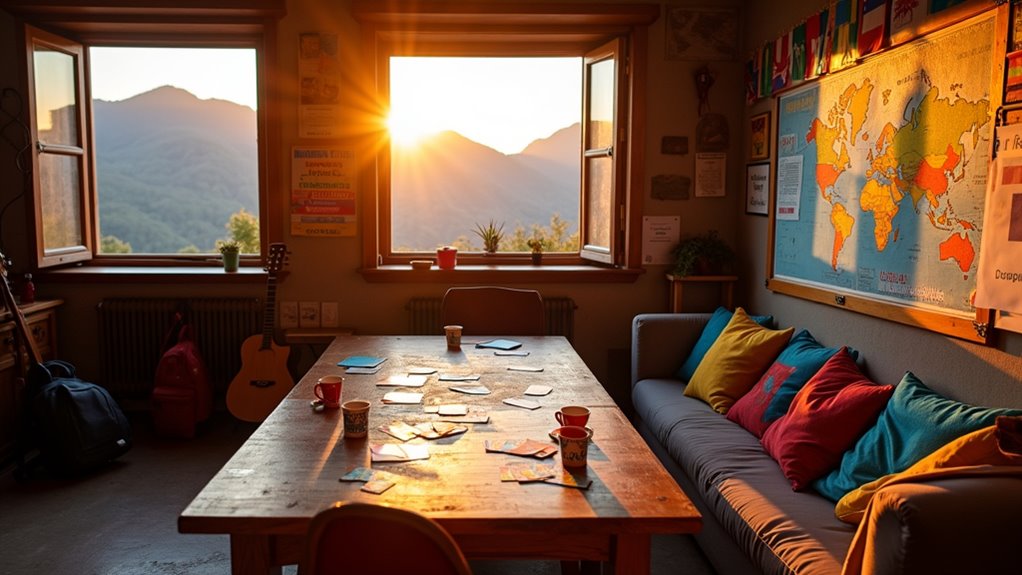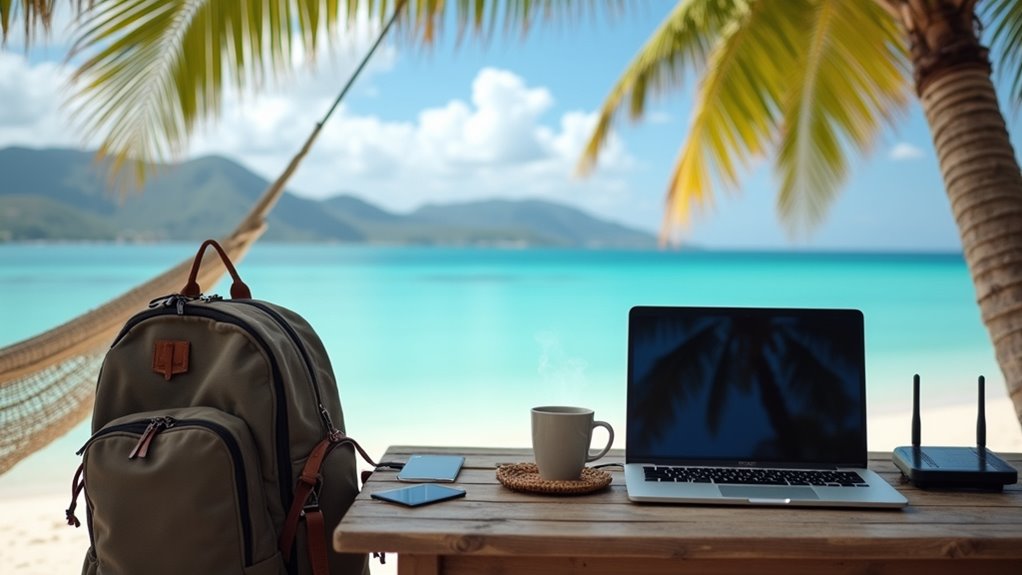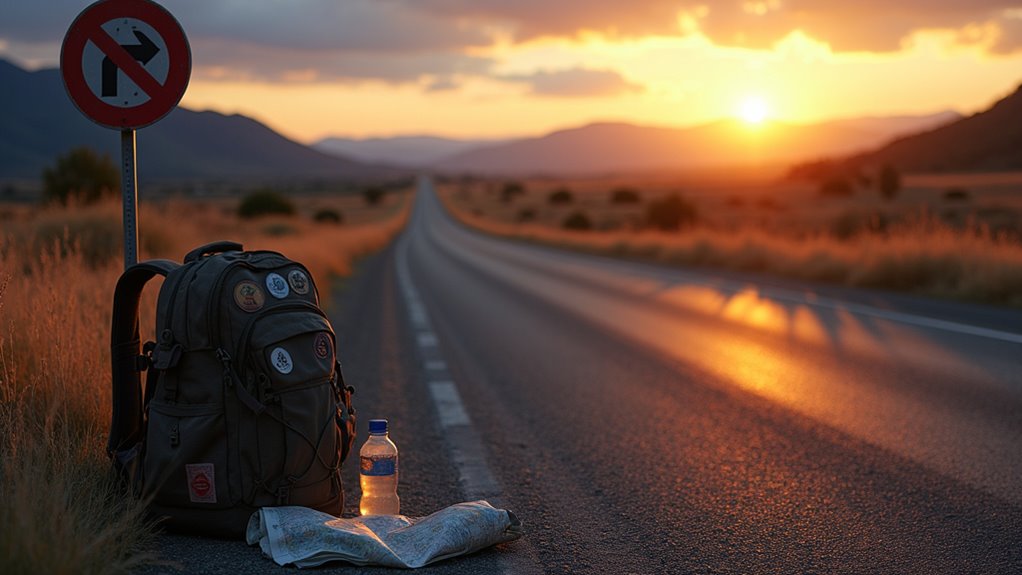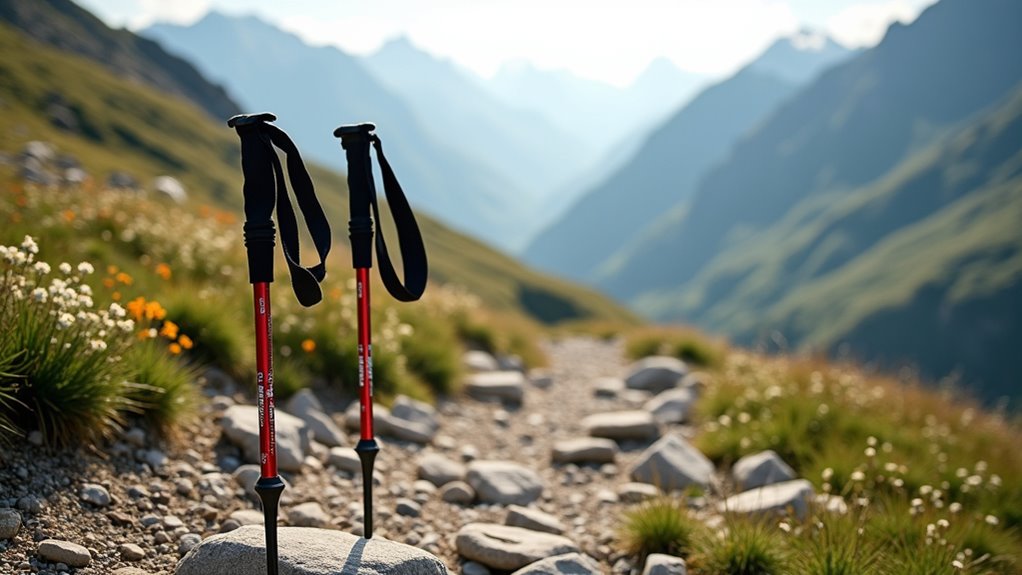To start backpacking, pick an easy, nearby trail for your first overnight, and borrow or rent essential gear like a lightweight tent, a 55L backpack, and an insulated sleeping pad. Prioritize a sleeping bag suited to temperatures at least 10°F lower than expected. Prepare simple, high-calorie meals and store food safely—especially in bear country. Check for permit requirements and learn Leave No Trace principles. Support your plans with physical preparation to stay safe. As you progress, you’ll uncover essential techniques and important safety insights.
If you’re ready to explore the outdoors beyond day hikes, backpacking offers a structured way to experience remote trails and overnight camps while carrying all your essentials on your back. For your first trips, select close, easy trails—short overnight hikes near home let you manage logistics and learn skills without committing to multi-day treks.
Borrow or rent backpacking gear at first to reduce costs and discover your preferences before investing. Focus on essential equipment: a reliable shelter like a lightweight, three-season tent or hammock with a rainfly, a sleeping bag rated 10-20°F below the coldest expected temperatures, and an insulated sleeping pad with at least a 2+ R-value. Include a pack (50-65 liters) with adjustable torso length and hip belt for proper weight distribution. A 55L backpack is suitable for overnight trips, providing enough space for extra gear and essentials.
Start by borrowing or renting backpacking gear to save money and find what works best before making big purchases.
Always check if the trail or campsite requires permits, as failure to secure them can result in fines or denied entry. Study and apply Leave No Trace principles to minimize your impact and preserve wild areas for others. Many popular trails require wilderness permits; reserve these in advance to avoid missing out on high-demand routes.
When planning meals, estimate your daily energy needs—typically 2,500 to 4,500 calories per day—using dehydrated meals and high-energy snacks like nuts, jerky, and chocolate for efficient nutrition. In bear country, store food and scented items at least 100 feet from your tent in approved canisters or bear-proof bags.
Physical preparation is critical. Build endurance with regular day hikes, gradually increasing distance and elevation, and carry a loaded pack (30-40 pounds) to simulate trail conditions. Stair climbing or hill walks, combined with core-strengthening exercises, help prevent fatigue and improve balance. Always check weather conditions before heading out to ensure you’re prepared for potential temperature changes or precipitation.
Test your gear setup in your backyard or local park before heading into the wilderness. Navigation and safety require a topographic map and compass as your primary tools, backed up by a GPS device or offline smartphone maps with extra battery power.
Pack emergency supplies such as a whistle, signal mirror, fire starter, space blanket, and a thorough first aid kit. Before departure, check the weather forecast and adjust your packing list accordingly.
On the trail, start early, pace yourself, monitor hydration, and treat foot problems immediately to guarantee a safe, enjoyable backpacking experience.









